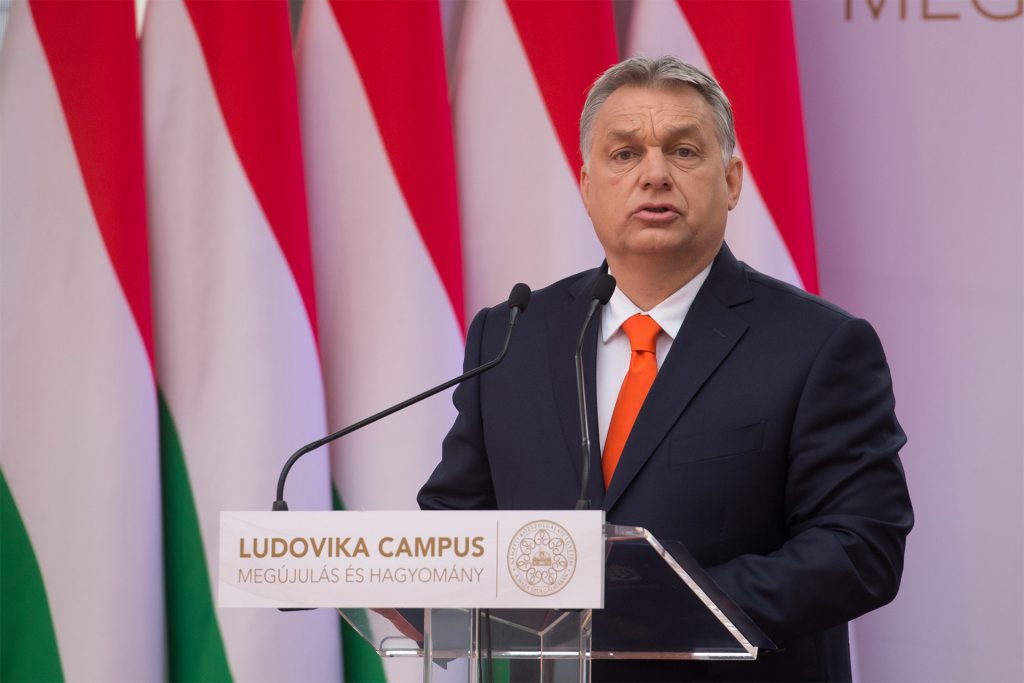A disturbing trend towards autocracy is stretching from Eastern Europe to the United States.
Jacob Prall
When the shackles of the Union of Soviet Socialist Republics fell away, Eastern Europe rejoiced. Countries such as Hungary, Poland, and the Czech Republic all clamored for a taste of liberal democracy. They embraced government by the people and for the people with fair and open elections. It was a triumphant moment for democracy, but nearly 30 years on, the tides are turning quickly in Eastern Europe and around the world.
Every region has a different reason to drift away from democracy toward autocracy, though many governments share common themes. In Hungary as in much of Eastern Europe, right-wing parties are capitalizing on the fear of globalization and the European Union. They emphasize international trade, migration, and the disappearance of religion in modern life. Hungary’s right-wing party, the Fidesz party, has consolidated its power.
RELATED: World canvass discusses fake news international implications
Elections are merely a show; Prime Minister Victor Orban will soon be elected to his third term, and he isn’t going anywhere. He solidified his power by neutralizing the independent judiciary, subjugating media outlets, demonizing migrants, and surrounding himself with wealthy cronies. He appeals to a narrative of national victimhood and wants to return to an age of prominence. Orban points to the European Union as the source of Hungary’s problems, ignoring the financial benefits joining the European Union has brought to Hungary through the single market.
In fact, people in Hungary are generally more distrustful of Brussels than Moscow, openly despising their allies while at times feeling warmth toward Russia. Orban’s party is largely to blame. He runs Hungary through a competitive authoritarianism, a system that masquerades as a democracy. It’s an autocracy playing dress up as liberal democracy.
Orban’s tactics are straight out of Vladimir Putin’s playbook. Putin is infamous for killing or jailing political rivals, rigging elections, and surrounding himself with loyalist cronies and Russian plutocrats. It’s what Putin wants to see happen throughout Europe, as the resurgence of populist, nationalist, far-right leaders destabilizes the world order. Putin knows that to conquer, he must divide. Many were understandably upset when President Trump gave congratulations to Putin on his victory, despite the aforementioned affronts to global society and Putin’s all-out cyberwar to manipulate our electoral process.
RELATED: Townsend authoritarian Trump and the Milligram Experiment
Speaking of Trump, we can see a very clear parallel between Trump’s actions and that of the autocrats he openly admires. Attacks on the media, attempts to subjugate the judicial arms of the executive branch, and a fixation on immigration are textbook authoritarian moves. I don’t believe Trump is a mastermind purposefully deteriorating American democracy through rampant corruption, abuse of power, and manipulation. But I think there’s quite a bit we don’t know about the president, things that will (hopefully) be revealed by the Russia investigation. Trump’s tax returns will be the tip of the iceberg. While we are stuck with him, we must guard against the pull of authoritarianism by recognizing propaganda and actively participating in government at all levels. Disengagement and disillusion opens the door for autocrats, who can, and in some places have, taken total control.



